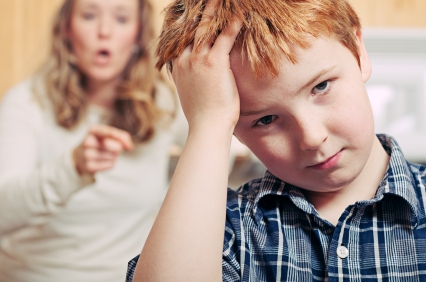
photo credit: iStock
In my first article about overly critical parents I talked about the consequences and long-term effects of being an overly critical parent or a child of an overly critical parent. In this article I will discuss how to avoid being a critical parent. Most of the time, I don’t think overly critical parents are coming from a malicious place. I think that perhaps their past hurts or being products of ineffective parenting themselves, create the overly critical parent. Many times, I don’t even think they are fully aware of their actions, or maybe they are but aren’t aware of how to change them. If that’s the case for some parents out there, the information may help you to be more aware of your actions.
Before we go any further, let me just say that the intention for this post is not to past judgment or tell you how you have failed miserably as a parent. I’m a parent as well and what I do know is there is no handbook and none of us gets everything right all the time. So, don’t beat yourself up for what you’ve done; just improve moving forward. Hopefully my tips below will help you avoid those overly critical things that you think might be helping or you don’t even know you’re doing.
Check Your Emotions: As adults, we have to guide the ship of emotions for our children. Their brains aren’t even fully developed until age 24 and they need help learning how to react appropriately to challenging situations. We have to show them how by doing it ourselves. So, before you react check your own emotions and don’t allow them to guide you toward escalating the situation. It’s so easy (believe me I know) to want to engage in a back and forth argument, but you have to remember that you are the adult. There’s no need to argue back and forth or respond to a temper tantrum. Simply, state your position and let your child know that you will not pay any attention to them until they respond calmly. There’s no need to try and prove who has the power. As a matter of fact, engaging in a pointless power struggle with your child only gives both of your “power” away.
Don’t Take It Out On Your Child: My cousin, who is married with children put this on Facebook last week; “Ugghhh, I don’t want to “adult” today!” I must admit that I wake up feeling like that sometimes as well. I just don’t want to figure out how to balance motherhood, wifeyhood (yep, I just made up that word) and womanhood. As a matter of fact, some days I wake up angry for even having to try to figure it out, and on those days I have to catch myself before snapping at my children. But sometimes, I don’t catch myself and I take my frustrations out on them by being impatient with things I normally wouldn’t even be frustrated with. Check yourself before you react to find out what or who you’re really mad at. Give yourself a moment, go take some deep breaths and collect yourself before delving back into parenthood. There’s nothing wrong with pausing before addressing whatever situation that needs to be addressed.
Avoid Absolutes and Shaming: You may not be aware of this, but words like always, never, all the time actually hurt. For example, if your child spills something while trying to get a glass of juice all by her/his self, avoid snapping back with statements like, “you ALWAYS spill stuff!” As a matter of fact, don’t get upset at your child for spilling something. We ALL spill things, so a child is going to spill while trying to find independence and learning how to do things. Instead, praise your child for attempting to get a drink on her own and teach her how to clean up the mess. Teaching your child how to correct their errors AND learn how to forgive herself for making them is a much more powerful life lesson than expecting her not to make them at all.
Learn How To Say I’m Sorry: When those moments arise when you slip up (and those moments will arise), there are 3 powerful words that you need to learn how to say…I AM SORRY. Apologizing to your children is not a sign of weakness and it doesn’t diminish your “power.” It models the type of behavior you should have when you make a mistake. When they see you apologizing, they will learn to do the same thing when they do something wrong.
Be Mindful Of What You Say: This is probably one of the most important tips I can give you. Remember, your voice is the first voice your child ever hears. Your words help to mold their image of self. Essentially, your voice becomes their inner voice and it’s so hard to learn how to re-record that voice. Despite popular opinion that sticks and stones may break your bones, but words will never hurt you, words do hurt. Your overly critical, negative words can break your bond that you have with your children; they help to start a pattern of self-sabotaging behavior and low self-esteem; they can cost your adult child years of therapy to try to correct that inner voice that you gave them. Being “right” is simply not worth all of that.
